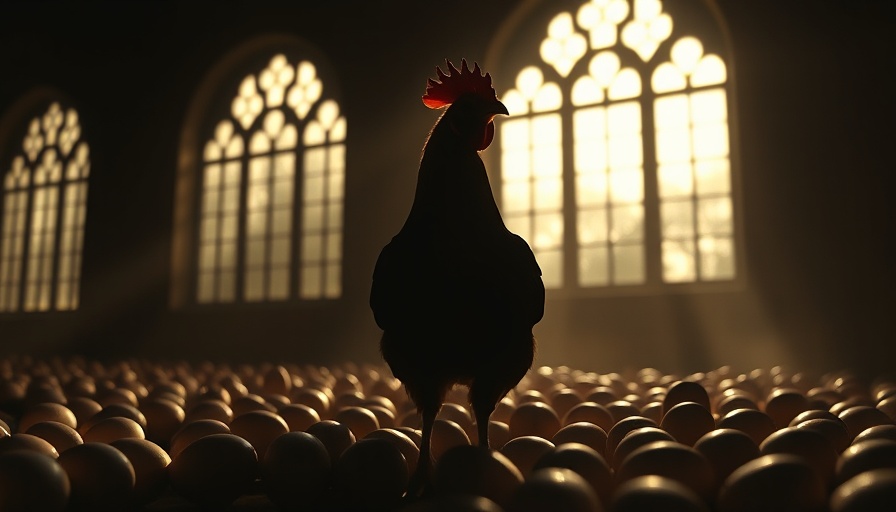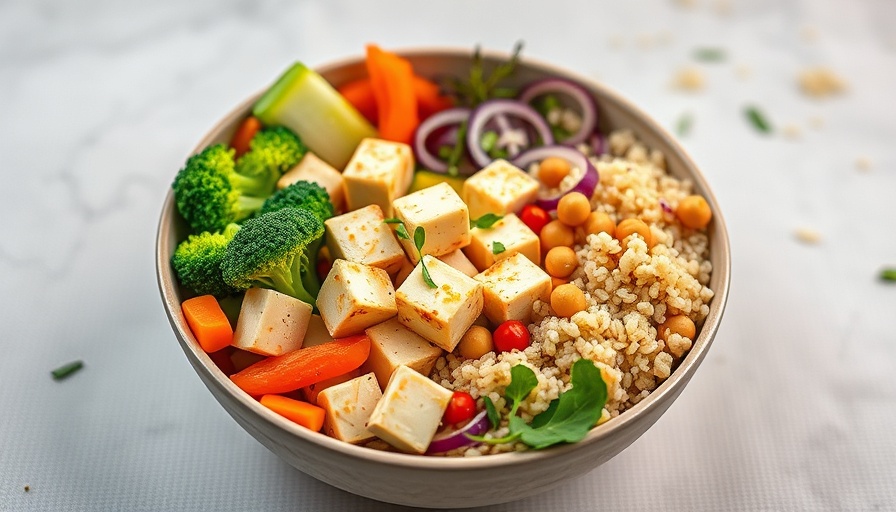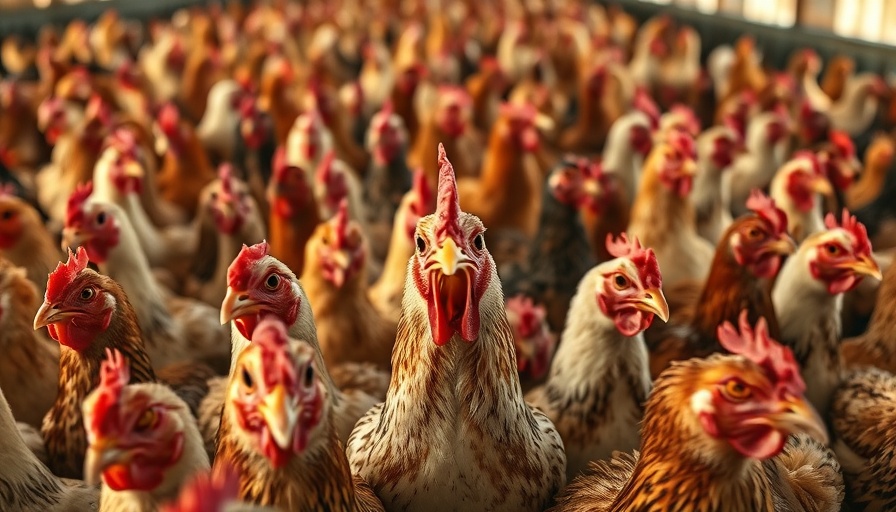
Understanding the Evolution of Bird Flu
Bird flu, scientifically known as avian influenza, has a long-standing history, primarily originating as a benign virus within wild ducks. However, human activities over the years, particularly in livestock farming, have drastically transformed this virus from harmless to harmful. Dr. Michael Greger, in his extensive work, highlights how our interactions with animals, especially in intensive farming scenarios, are rapidly altering the dynamics of this once-innocuous virus. The transformations sparked by industrial practices pose a serious threat, especially in light of recent outbreaks that have reignited fears of potential pandemics.
The Current State of Bird Flu Outbreaks
As of 2025, a renewed urgency surrounds avian influenza due to notable outbreaks within poultry and even new incidents involving dairy cows. According to reports, recent cases have infected millions of laying hens while also emerging in dairy herds across the United States. Public health officials express extreme concern over the ability of the current H5N1 strain to mutate and potentially spread among humans, a situation echoing the initial stages of the COVID-19 pandemic.
Why Should We Care? The Risks of Zoonotic Diseases
Understanding zoonotic diseases like bird flu is crucial, especially as they can unexpectedly leap from animals to humans. With over 67 human cases linked to direct interactions with infected animals, the stakes continue to rise. The health implications extend beyond immediate concerns; we must also consider the economic repercussions tied to agricultural disruptions. In a world still recovering from the economic toll of COVID-19, the potential for an equally impactful avian flu pandemic dramatically highlights the importance of preventive measures.
Comparative Insights: Past and Present
The history of bird flu showcases a narrative of neglect and underestimation, similar to that of many emerging diseases. Drawing parallels with the COVID-19 pandemic, experts now stress that a proactive approach to veterinary health may be our best defense against future outbreaks. Previous responses to bird flu have demonstrated a reactive rather than proactive approach, leaving humans vulnerable to the mutations that can emerge from unregulated farming practices.
Preventive Strategies and Community Responsibility
To combat the prevalence of bird flu and other zoonotic threats, we need to work towards improving farming conditions. This includes enhancing animal welfare standards and adopting better biological controls in food production. Considerable investment in veterinary health systems, improved hygiene practices, and community awareness can lead to substantial benefits. As community members, we should advocate for sustainable food systems that prioritize animal health and, by extension, our own.
Future Predictions: A Call for Vigilance
Experts predict that without significant changes in our approach to agriculture and animal health, we could face increased frequency in zoonotic disease outbreaks. Investors and agricultural stakeholders are urged to adapt through sustainable practices, focusing on resilience and safety within the food supply chain. As trends shift towards plant-based diets and alternative proteins, the industry could see a necessary transformation that benefits both public health and environmental sustainability.
Building a Safer Future
The insistence of preventing future pandemics resonates not just within health circles but is crucial for global economies dependent on strong agricultural systems. The ongoing surveillance for bird flu and closely related viruses must be prioritized—both monitoring existing cases and reforming farming practices to reduce the risk of transmission. Community engagement and education play a pivotal role in preventing future crises, as well-rounded public health measures emerge as essential components of our collective defense against zoonotic diseases.
In conclusion, the stakes are high as we navigate the complexities of avian influenza. By understanding our integral role in its evolution, and advocating for more humane farming practices, we can better protect ourselves from potential outbreaks, ensuring a healthier future for both humans and animals.
 Add Row
Add Row  Add
Add 




 Add Row
Add Row  Add
Add 

Write A Comment